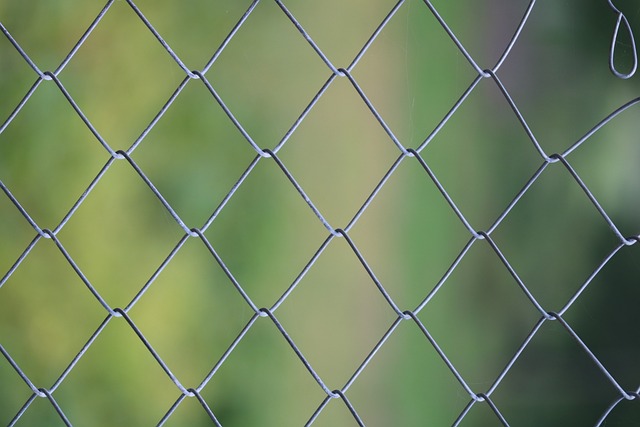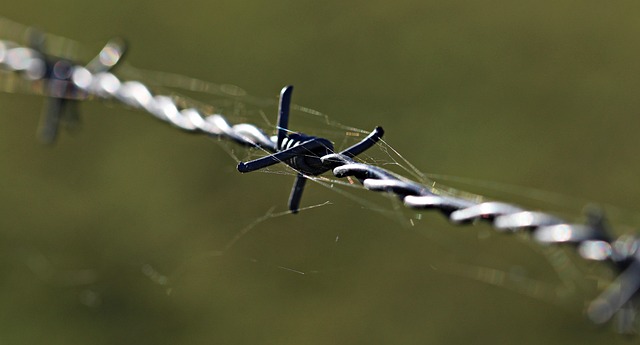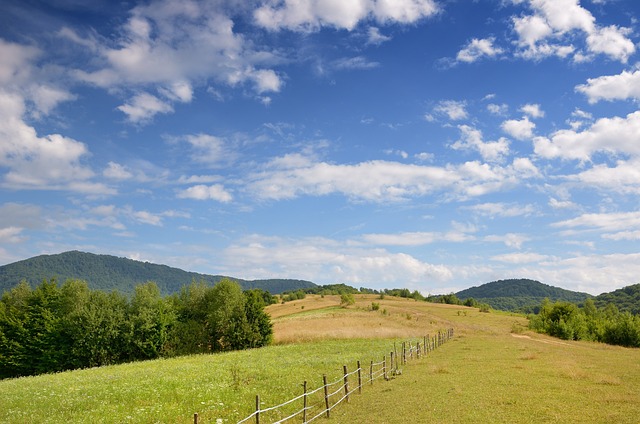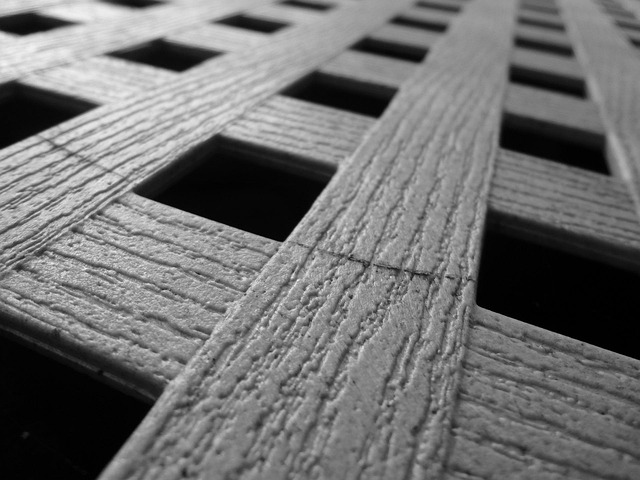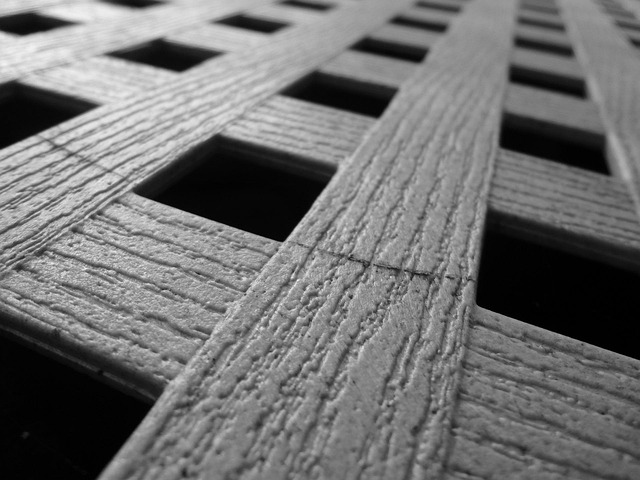Before hiring a fence installation company in Barrie, Ontario, define your fencing needs based on pu…….
Category: Fencing Barrie
Fencing Barrie: A Comprehensive Exploration
Introduction
Welcome to an extensive exploration of ‘Fencing Barrie’, a dynamic and evolving concept that has garnered significant attention in various sectors. This article aims to dissect and demystify this phenomenon, offering readers a comprehensive understanding of its historical roots, global impact, economic implications, technological innovations, regulatory framework, challenges, and future prospects. By the end, you will grasp why Fencing Barrie is not just a buzzword but a transformative force shaping industries worldwide.
Understanding Fencing Barrie: Unveiling the Concept
Definition and Core Components
Fencing Barrie, in its essence, refers to an innovative approach to urban planning and development characterized by strategic integration of fencing technologies and design principles. It involves the creative use of fencing materials and structures not just for security or boundary demarcation but as a means to enhance urban aesthetics, promote community engagement, and foster sustainable development. The core components include:
- Fencing Materials: Varied options such as metal (stainless steel, aluminum), wood, vinyl, and fabric are employed, each offering unique visual appeal, durability, and functional benefits.
- Design Aesthetics: From minimalist modern designs to intricate artistic patterns, fencing can be tailored to complement surrounding architecture and landscapes.
- Functional Applications: Beyond security, it may serve as a canvas for public art, support urban farming initiatives, provide privacy or noise reduction, and facilitate wayfinding in complex spaces.
Historical Context and Evolution
The concept of Fencing Barrie has evolved over centuries, reflecting changing societal needs and aesthetic preferences. Historically, fencing served primarily as a defensive measure and boundary marker. However, with urbanization and the rise of modern architecture, its role expanded. In recent decades, there has been a significant shift towards recognizing fencing not just as a functional necessity but as an integral part of urban design and community engagement strategies. This evolution is evident in cities worldwide, where innovative fencing solutions are transforming public spaces.
Global Impact and Trends: A World-Wide Influence
International Adoption and Adaptation
Fencing Barrie has left its mark across continents, with each region adapting the concept to suit local aesthetics, climates, and cultural contexts. From the intricate metalwork of European cities to the seamless integration of natural materials in Asian urban landscapes, the global community is embracing this versatile design tool. For instance, Barcelona’s iconic street furniture, including unique fencing elements, has become a model for urban renewal projects worldwide.
Key Global Trends
- Sustainable Urban Development: Many cities are adopting eco-friendly fencing materials, such as recycled metal or biodegradable fabrics, aligning with global sustainability goals.
- Public Art Integration: Fencing is increasingly being used as a medium for public art installations, enhancing urban spaces and fostering community pride.
- Smart City Applications: Technological advancements enable interactive fencing solutions, incorporating sensors for traffic monitoring or wayfinding systems, contributing to smarter cities.
- Cultural Preservation: In heritage sites, custom-designed fencing preserves historic landscapes while allowing access, blending traditional aesthetics with modern functionality.
Economic Considerations: Market Dynamics and Impact
Market Size and Growth
The global fencing market is a substantial industry, with various segments including residential, commercial, industrial, and public sector applications. According to a 2022 report by Grand View Research, the global market size was valued at USD 139.5 billion in 2021 and is expected to grow at a CAGR of 6.7% from 2022 to 2030. This growth is driven by increasing urbanization, infrastructure development, and a rising demand for aesthetically appealing and secure fencing solutions.
Investment Patterns and Opportunities
- Public Sector Investments: Governments worldwide are allocating funds for urban renewal projects, including fencing upgrades, as part of broader city beautification initiatives.
- Real Estate Development: Luxury and mixed-use real estate projects often feature custom fencing designs, attracting high-end tenants and residents.
- Infrastructure Projects: Road expansions, park developments, and construction sites require temporary or permanent fencing solutions, presenting consistent demand.
Economic Impact and Multipliers
Fencing Barrie contributes to local economies in several ways:
- Job Creation: The manufacturing, installation, and maintenance of fencing generate employment opportunities in skilled trades and support services.
- Local Business Growth: Fencing projects often spur related industries, such as landscaping, art galleries, and urban furniture manufacturers.
- Tourism Boost: Visually appealing urban spaces, enhanced by thoughtful fencing design, can attract tourists and promote local businesses.
Technological Advancements: Driving Innovation
Material Science Innovations
- Smart Fencing: Researchers are developing self-cleaning and self-repairing materials, ensuring longer fence lifespans and reduced maintenance costs.
- Solar-Powered Fencing: Integrating solar panels into fencing designs provides energy for lighting or sensor applications, contributing to sustainable cities.
- Biomimicry: Drawing inspiration from nature, new materials mimic the strength and flexibility of organic structures, offering innovative solutions.
Digital Integration
- Interactive Wayfinding: Advanced fencing systems incorporate digital displays and sensors for real-time wayfinding, emergency communications, or public announcements.
- Security Enhancements: Technology enables remote monitoring and access control, enhancing security in parks, construction sites, and restricted areas.
- Public Art Activation: Digital signage on fences allows for dynamic art exhibitions and interactive experiences, engaging the community.
Design and Aesthetics: Shaping Urban Landscapes
Visual Appeal and Community Engagement
Fencing Barrie goes beyond functionality; it is a canvas for artistic expression and community engagement. Custom designs, vibrant colors, and intricate patterns transform ordinary fences into eye-catching urban features. These aesthetic enhancements contribute to the overall character of neighborhoods, attracting visitors and fostering community pride.
Integrating with Urban Planning
- Wayfinding and Branding: Strategically placed fencing guides pedestrians and vehicles, enhancing wayfinding and promoting local businesses or attractions.
- Landscape Integration: Natural materials and organic designs blend seamlessly with surrounding landscapes, creating harmonious urban environments.
- Cultural Reflection: Fencing can reflect the cultural identity of a community, celebrating heritage through unique design elements and motifs.
Functional Applications: Beyond Security
Promoting Sustainable Development
- Urban Farming: Fencing provides structured garden beds for community gardens, promoting local food production and green spaces.
- Noise Reduction: Sound-absorbing materials in fencing help mitigate urban noise pollution, creating calmer public spaces.
- Wildlife Conservation: Custom designs can exclude invasive species while allowing native wildlife passage, supporting ecological balance.
Community Engagement and Safety
- Public Art Galleries: Fences become outdoor galleries, showcasing local artists’ works and encouraging community interaction.
- Event Spaces: Temporary fencing transforms urban areas into pop-up event spaces for markets, performances, and festivals.
- Emergency Access: Strategic fencing ensures clear access routes during emergencies, facilitating efficient response and evacuation.
Future Prospects: Trends to Watch
Smart Cities and Digital Integration
As cities embrace the Internet of Things (IoT), fencing will play a pivotal role in connected urban ecosystems. Interactive fences will provide real-time data on traffic flow, air quality, or public health metrics, enabling smarter decision-making.
Climate Resilience
With climate change concerns, Fencing Barrie can contribute to resilient urban environments. Adaptable materials and designs can withstand extreme weather events, while green fencing supports urban heat island mitigation strategies.
Customization and Personalization
Personalized fencing solutions will continue to gain popularity, allowing individuals and businesses to express their unique identities. From custom patterns to branded signage, fences will become increasingly tailored to individual preferences.
Challenges and Considerations: Navigating the Future
Regulatory and Safety Concerns
- Safety Standards: Ensuring structural integrity and safety is crucial, especially for load-bearing fencing in industrial settings.
- Regulatory Compliance: Local authorities must update zoning regulations to accommodate creative fencing designs while maintaining neighborhood character.
- Accessibility: Designers should consider accessibility requirements for all users, including those with disabilities.
Environmental Sustainability
- Material Choices: Promoting recycled and eco-friendly materials is essential to minimize the environmental impact of fencing production and disposal.
- Longevity and Maintenance: Designing for durability reduces frequent replacements, minimizing waste and costs.
Conclusion: A Transformative Force in Urban Development
Fencing Barrie is not merely a trend but a significant aspect of modern urban planning and development. Its versatility, aesthetic appeal, and functional benefits make it a powerful tool for creating vibrant, sustainable, and engaging cities. As technology advances and global trends evolve, Fencing Barrie will continue to shape our urban landscapes, connecting communities and enhancing the quality of life in diverse environments. With careful consideration of design, functionality, and sustainability, this concept promises to leave a lasting legacy on the cities of tomorrow.
Leading Fence Companies in Barrie, Ontario: Custom Solutions for Your Property
In Barrie, Ontario, custom fencing isn't just about functionality—it's an investment…….
Fencing in Barrie Ontario: Navigating Regulations, Material Choices, Design, and Installers
To install a fence in Barrie, Ontario, follow local regulations, understand building codes, and sele…….
Fencing in Barrie Ontario: Expert Guidance on Material Selection
Choosing the right fencing material for your outdoor space in Barrie, Ontario, is key to enhancing d…….
Elevate Your Space: Unique Fencing Designs for Barrie Homes
When choosing a custom fence for your Barrie home, consider privacy, security, aesthetics, and funct…….
Sustainable Fencing in Barrie: Eco-Friendly Options with Fence Right Inc
In Barrie, Ontario, environmentally-conscious residents and businesses are turning to Fence Right In…….
Fencing Barrie: Choosing the Perfect Style with Fence Right Inc
Fence Right Inc specializes in providing tailored fencing solutions for diverse Barrie, Ontario land…….
Boost Your Barrie Property’s Appeal with Wrought Iron Fencing from Fence Right Inc
Fence Right Inc offers high-quality, durable wrought iron fences tailored to withstand local weather…….
Fencing Barrie: Boost Security with Fence Right Inc’s Custom Solutions
Investing in a security fence from Fence Right Inc is a smart choice for homeowners in Barrie, Ontar…….
Protect Your Fence: Maintaining Barrie’s Weather-Resistant Barrier with Fence Right Inc
Fencing in Barrie, Ontario, requires year-round care due to its humid continental climate. Regular c…….

